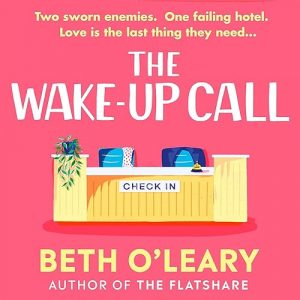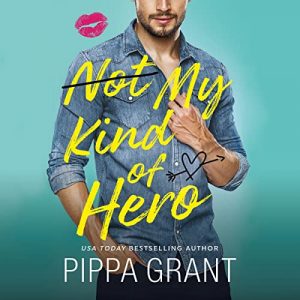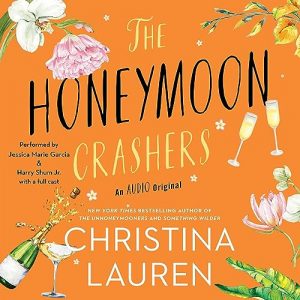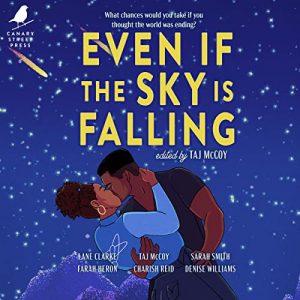Shanna by Kathleen E. Woodiwiss, narrated by Robin Miles. I did not love the narration but the story held up pretty well, considering.

Story holds up but narration was a little disappointing.
I have a confession. Shanna is on my keeper shelf. First published in 1977, it was one of those novels I cut my romance-reading teeth on, before I knew much of anything about anything. It’s, obviously, “old skool” romance. But, as these books go, it has much less of the more egregious or objectionable content than others and is, while still problematic, it is at least far less so than others from this author or of the time period.
Harper has released Woodiwiss’s novels on audio with new recordings. Each has a (long) foreword which talks about how the book is of it’s time etc etc. I didn’t listen to it. I know the book already so I knew what I was getting into.
Shanna is also a long book – the kind of sweeping story you don’t get much these days (there are reasons for that – some good, some not so much IMO) – my paperback is 656 pages and the audiobook, complete, with foreword, tops out at nearly 30 hours.
Shanna Trahern is the young, beautiful and wilful daughter of Squire Orlan Trahern (who is Welsh but you wouldn’t know that from the narration – more on that later). Squire Trahern owns a small island “Los Camellos” somewhere not terribly far from England. It takes about a week to sail there in an old-timey ship but it’s tropical. That’s what I know. He’s a wealthy and widowed merchant with a longing for grandchildren and so he’s very keen for Shanna to marry. Unfortunately for him, Shanna is picky and he eventually gives her an ultimatum: find someone she wants to marry within a year or he will do the picking for her. Shanna is not having it. She has found no-one suitable and so comes up with a scheme to flout her father’s will. There is a condemned prisoner in Newgate with the impressive surname of Beauchamp (pronounced “Beacham”; something I only know because of Outlander – English is stupid) but due to hang within the week. She offers a bargain to Ruark Deverell Beauchamp, a colonial from Virginia: in return for his name, she will make his final days easier. Ruark, makes his own amendment to the deal. He will marry Shanna, but he wants a true wedding night. She agrees.
The only dubious consent (between the love interests at least) in Shanna arises from this bargain. Shanna makes the deal but plans to renege. Her plan was for the reneging to occur before any hanky panky in the carriage after the wedding, but she mistimes her “rescue”. As it happens, Ruark takes her virginity but is unable to, er, finish, let’s say. Ruark doesn’t exactly force Shanna to consummate the marriage – he is far more persuasive than that and she is not immune to his charms. Still she doesn’t exactly give enthusiastic consent either. I viewed it as a kind of sex work – the book certainly references it as a bargain struck. YMMV.
After that, the sex is all fully consensual. And, for a mainstream book from 1977 there is a lot of it. It’s not explicit – there is an abundance of euphemism and the prose is a little purple but Shanna and Ruark are boning down pretty regularly throughout the story. There’s probably something a bit revolutionary about that deserving of its own op-ed but I don’t have time for it here so I’ll move on.
Shanna, believing Ruark duly hanged, returns to Los Camellos and her father a “widow”. Squire Trahern thus thwarted must respect her bereavement.
Only, Ruark, due to the machinations of a greedy gaoler and a corrupt man of business, has escaped the hangman’s noose and has instead been sold as a “bondslave” (a kind of indentured servitude) to none other than the squire himself.
It does not appear that Squire Trahern is a slave owner in the sense of the African slave trade. He does buy “bondslaves” by paying their debt following an auction and then, in return for their labour, paying them a wage and keeping some of it until the debt is repaid. The squire’s bondsmen are, from what I could tell, fairly well looked after, have autonomy in many ways and are not locked up (at least not once on Los Camellos) or restricted in a cell or anything like that. They can’t leave the island until their debt is paid but they have the run of the place. They are provided with clothing and a wage which I gathered was fair for the time (?) and they are given the ability to earn more if their work is good.
(Ruark is a very good worker and he quickly gets a number of pay rises. It doesn’t take long for Ruark to become the squire’s right-hand man when it comes to farming, and he is often found at the squire’s table for breakfast or dinner. The squire doesn’t have any qualms about sharing his dinner table with Ruark and demands Shanna treat him as a guest when he is there.)
There is talk in the book of “slaves” but they are, for the most part, indentured labour who are not permanently enslaved – here is how Wikipedia differentiates the two: indentured servitude of Irish and other European peoples occurred in seventeenth-century Barbados, and was fundamentally different from enslavement: an enslaved African’s body was owned, as were the bodies of their children, while the labour of indentured servants was under contractual ownership of another person.
Indentured servitude is definitely not something I endorse but in the setting and the society of the time, I give the squire some points for not using enslaved people from Africa which was sadly common at the time for landowners growing sugar cane.
Later in the book, there is one reference to “slave quarters” at the family home of Beauchamps but there is no other reference to slave labour, so it seemed to me this was a reference, again, to indentured servitude. I’m a bit rubbery on this though as there is a dearth of information about this in the text.
There are certainly problematic things in Shanna. Indentured servitude is bad. Owning a person, even “temporarily to pay off a debt” is bad. There is no such thing as a “good slaveowner”.
There are people of colour in the book, some of them servants. They all appear to be free people, treated well, respected and valued.
There is some language in the book which is objectionable, particularly in one section where there is a reference to a biracial person of colour by use of a euphemism which is not okay (starts with “m”, ends with “o”).
There are also repeated references to Native American people as “s__ages”. For the most part this notion is strongly refuted so there’s that, but still.
What I’m saying is that this book is not going to be for everyone and that’s totally fair. Possibly my love for the book stems from when I first read it and the ignorance I had then. But I felt like this book held up reasonably well, all things considered.
Anywho, Ruark comes to Los Camellos and there is a constant reminder to Shanna of a “bargain fairly struck but unmet”. Ruark doesn’t press her exactly. He’s just there, reminding her of her promise and that’s enough. He’s also gorgeous and she remembers those pants-feelings he gave her and is curious about where they may all lead. He’s also clever and quick. He designs things that make the worker’s lives better and make more money for the squire. He does odd jobs for locals in his free time. He’s actually a good guy she comes to admire for himself apart from anything else. Had they met in a more traditional manner she probably would have fallen head over heels for him.
Shanna’s battle isn’t really against Ruark. It’s against herself. Shanna had the idea of marrying a nobleman. Ruark was a convicted criminal. He denies powerful relations. He is currently a bondsman. That is not the ideal husband Shanna had in mind. Even after Shanna gives into her physical desires, she holds herself apart from him emotionally. It takes her an eon (well, about a year but it‘s a really long book!) to get with the program and admit her love. Ruark, for his part, loves her almost from the first (that is one of the best parts of the book.)
There’s a capture by pirates, travel to Virginia and revelations about whether or not Ruark was fairly condemned to hang (spoiler: he wasn’t) and who the bad guys are, revelations about connections between other cast members in the story, revelations to the squire about Shanna and Ruark’s true relationship (Orlan has no idea and it’s a messy story that starts in a gaol so that’s not a conversation Shanna has been looking forward to at all). And there’s a HEA. Of course.
The language is of its time, a little on the flowery side. Possibly I’d struggle to read it for the first time now, but the nostalgia is powerful and it brought back fond memories of the first time I read the book.
I had heard excellent things about Robin Miles and I had high hopes for the narration. I was disappointed. The narrative and her voice for Shanna were the best parts of it. She certainly had good pacing and delivered with expression and emotion. But there were many many accents required for this book and most all of the others were terrible.
Shanna was “shah-na” or “shan-a” (rhymes with manna) interchangeably for a while before settling on the latter (yay – that’s how I think it should be said). Ruark’s accent changed too – although to be fair, one of those changes was textual – he “affected an Irish brogue” for the squire when they first met. The Irish brogue was terrible though and it disappeared later without a trace. If the squire thought anything of it, it was never mentioned.
Ms. Miles is good at posh English accents. I’ll give her that.
Whatever accent she gave to Squire Trahern was like nothing I’d heard before – and not in a good way. It was certainly nothing approaching Welsh. It’s difficult to describe other than to say it wasn’t good. Squire Trahern is a large part of the book so it was impossible for me to get past it.
Hergus, Shanna’s maid, had a Scottish accent which was okay sometimes and very much not other times. Berthe, the housekeeper was Dutch but the accent given to her did not sound so to me. There were others.
The bad accents got in the way of my enjoyment of the listen. I admit I turned to my paperback for some of it and skipped ahead.
Ruark’s voice was okay sometimes and I got used to it. Shanna’s tone was a little older than her years, but I could get past that. What Shanna needed was a Davina Porter (sadly, retired, but all the best to her) or a Nicholas Boulton.
For those who want to revisit the story or try it for the first time, I’d recommend the paperback or ebook over the audio, sadly.
Grade: B-/C+
Like this:
Like Loading...













